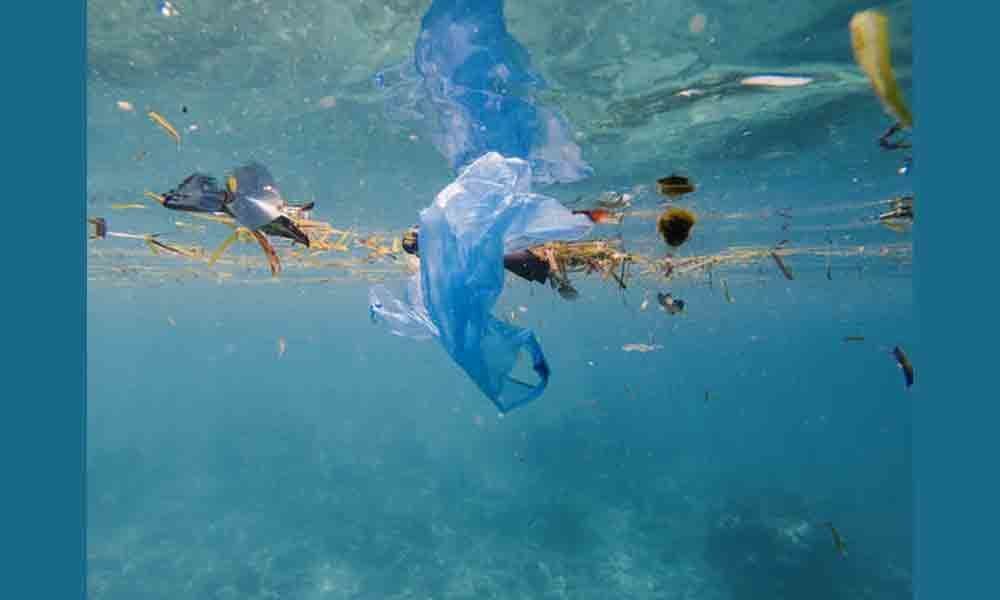Plastic pollution harming bacteria that help us breathe: Study

Chemicals leaching from plastic pollution may be harming ocean bacteria which produce ten per cent of the oxygen that we breathe, a study has found.
Chemicals leaching from plastic pollution may be harming ocean bacteria which produce ten per cent of the oxygen that we breathe, a study has found.
Plastic pollution has been estimated to cause more than USD 13 billion in economic damage to marine ecosystems each year, and the problem is only getting worse with marine plastic pollution estimated to outweigh fish by 2050.
In the first study of its kind, the researchers from Macquarie University in Australia looked at the effects these chemicals have on the smallest life in our oceans, photosynthetic marine bacteria. "We found that exposure to chemicals leaching from plastic pollution interfered with the growth, photosynthesis and oxygen production of Prochlorococcus, the ocean's most abundant photosynthetic bacteria," said Sasha Tetu, lead author of the study published in the journal Communications Biology.
"Now we'd like to explore if plastic pollution is having the same impact on these microbes in the ocean," Tetu said in a statement. "This pollution can leach a variety of chemical additives into marine environments, but unlike the threats posed by animals ingesting or getting entangled in plastic debris the threat these leachates pose to marine life has received relatively little attention," said Lisa Moore, from Macquarie University.
"We looked at a group of tiny, green bacteria called Prochlorococcus which is the most abundant photosynthetic organism on Earth, with a global population of around three octillion (about 1027) individuals," said Tetu. These microbes are heavy lifters when it comes to carbohydrate and oxygen production in the ocean via photosynthesis.
"These tiny microorganisms are critical to the marine food web, contribute to carbon cycling and are thought to be responsible for up to 10 per cent of the total global oxygen production," said Moore, explaining the fundamental importance of these microbes to ocean health. "So one in every ten breaths of oxygen you breathe in is thanks to these little guys, yet almost nothing is known about how marine bacteria, such as Prochlorococcus respond to human pollutants, " she said.
In the lab, the team exposed two strains of Prochlorococcus found at different depths in the ocean to chemicals leached from two common plastic products -- grey plastic grocery bags and PVC matting.
They found that exposure to these chemicals impaired the growth and function of these microbes -- including the amount of oxygen they produce -- as well as altering the expression of a large number of their genes. "Our data shows that plastic pollution may have widespread ecosystem impacts beyond the known effects on macro-organisms, such as seabirds and turtles," said Tetu.















